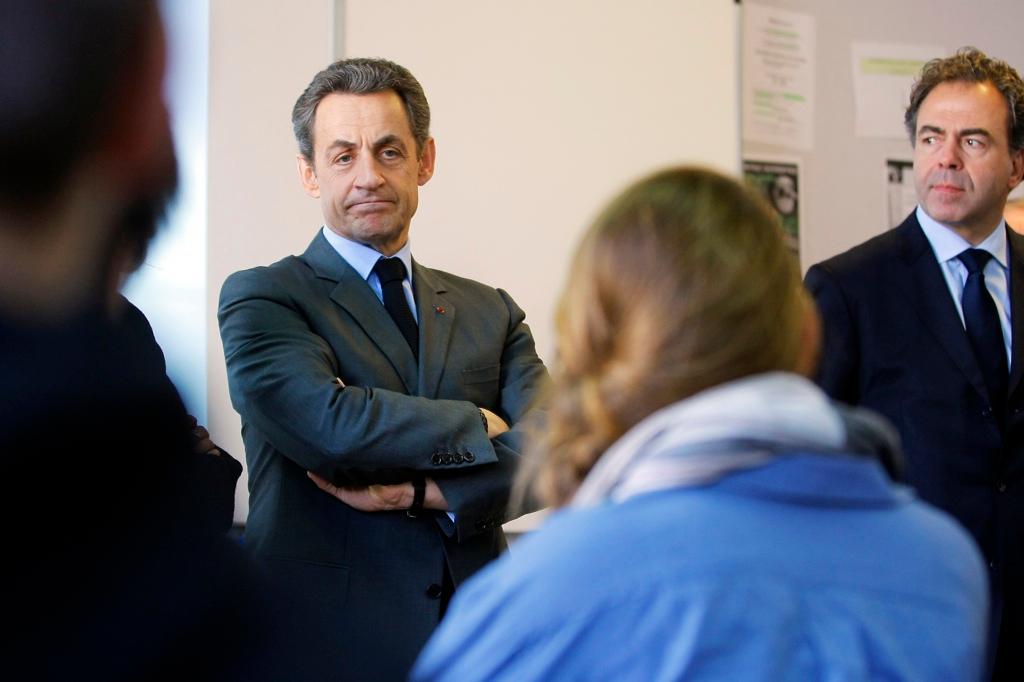What the Toulouse shootings mean for the election
Sarkozy: back on top?
PARIS, France — The dust has barely settled in the Côte Pavée district in Toulouse, where gunman Mohamed Merah was killed on Thursday. Already, the presidential race has resumed with its dose of maneuvering and politicking.
Earlier this week, most candidates suspended campaigning as police launched one of the largest manhunts in French modern time to track down the gunman responsible for the shooting of three Jewish children, a rabbi and three paratroopers in the Toulouse region.
Merah was killed on Thursday when French special forces stormed his flat, after an interminable stand-off that lasted 32 hours.
And while religious leaders have warned politicians against using the tragedy for political gain, Sarkozy clearly benefitted from the limelight.
"It enabled Sarkozy to show his capacity to manage crises and put the themes of security and immigration back in the center of the political debate," says Bruno Jeanbart, head of polling agency Opinionway.
Read more: Euro-trashing returns
In his handling of events in Toulouse, Sarkozy sought to portray himself as a protector, a tactic he had also adopted — with mixed results — at the height of the euro zone crisis. His rival and frontrunner Socialist François Hollande played understudy, attending the same events but without doing much to solve the crisis.
On Wednesday, at the funeral of the three paratroopers who were shot dead, presidential candidates were — whether they liked it or not — gathered round Sarkozy to show their respects.
In the polls, Sarkozy briefly overtook his rival Hollande, according to a survey conducted by CSA on Monday and Tuesday. Sarkozy garnered 30 percent of voting intentions, while Hollande hovered at 28 percent. But another poll carried out on Thursday showed Hollande back in front of his opponent.
BVA pollster Eric Bonnet says the crisis rallied people around the president. "Events in Toulouse benefited Nicolas Sarkozy, because he slipped back into his presidential garb, which is more unifying and less divisive," he said.
But the political truce observed during the days of mourning and the siege did not last long.
Read more: Who supports Le Pen?
The Socialists did not hold back from questioning the government’s handling of the crisis. Why did it take so long to track down Merah, a repeat offender who had spent time in Afghanistan and Pakistan and was on a US no-fly list?
Far-right National Front leader Marine Le Pen, who is polling in third place with 15 percent, was the first to break the show of the unity. "The danger of fundamentalism has been underestimated in our country,” she said.
It was expected that the Toulouse siege would benefit Le Pen, for whom immigration and security are familiar stomping grounds. Le Pen proposed a referendum on bringing back the death penalty.
But pollsters say she was unable to capitalize on the situation.
Read more: The EU's growth quest
"Against expectations, Marine Le Pen did not rise in the polls after the tragedy," says Bonnet. "Those who hesitate between Le Pen and Sarkozy were amply satisfied with his attitude during the crisis."
It appears that in the face of these violent the killings, many right-wing voters preferred to back a more reasonable and consensual figure. Le Pen's stance on the death penalty only really appealed to her traditional voters.
At first, Sarkozy advanced carefully on the topics of Islam and immigration, calling for calm and unity after meeting the leaders of the Muslim and Jewish faiths in Paris on Wednesday.
Read more: French towns ask for a bailout
When it emerged that the author of the killings was a French youth of Algerian origin, French Muslims feared a backlash. Mohammed Moussaoui, president of the French Council of Muslim Faith, said terrorists and Muslims should not be lumped together, adding that Muslims "do not accept that their religion be associated to such violence."
However pundits agree that the shootings have changed the tone of the campaign, and focused the debates on issues of immigration and security, themes that traditionally benefit conservatives.
Already, Sarkozy hit a controversial note this week, calling for a new law to criminalize visits to extremist websites. Earlier this month, Sarkozy had also taken a tough stance on immigration, saying France "had too many foreigners.”
This is an area where French Socialists are at a disadvantage. Their stance on immigration is neither strong nor clear.
Hollande supports giving immigrants working papers on "a case-by-case basis, according to objective criteria" — but has not clearly specified what that criteria would be.
"It’s difficult terrain for them, the Socialists haven’t really worked on those issues," Jeanbart says. “They didn’t think it was urgent, and focused on social and economic themes."
But Jeanbart warns that, five weeks before the first round of the presidential elections, the impact of the Toulouse killings cannot be predicted.
"It’s the first time France faces this type of event during the run-up to an election, we don’t know what the effects will be," Jeanbart says.
